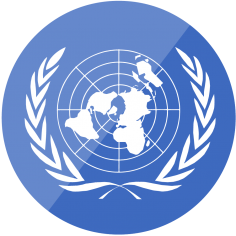
United Nations and Advanced Geography: Reshape the World
The defense of human rights, the response to humanitarian crises, the protection of the environment, and the provision of humanitarian aid are some of the issues that concern and are managed by the United Nations. In this course students get to know and understand through short lectures, various readings, discussions, experiential activities and research how the natural, economic, cultural and political characteristics of each country influence and shape policy-making at a global level.
In addition, they practice their speaking and writing, develop their critical thinking and broaden their knowledge of geography and international relations.
Students also learn about the role of ambassadors at the United Nations, as they take part in simulated meetings, exploring a specific country and determining its position on global issues that come before the Organization. Finally, they draft position papers and resolutions with an in-depth understanding of diplomatic negotiations.
LEARNING OBJECTIVES:
Understand the geographic factors that influence international relations and political decisions at the global level.
Study the structure, operation and role of the United Nations and other international organizations in dealing with global challenges.
Understand the importance of international cooperation and diplomacy in solving global issues such as climate change, humanitarian aid and peace and security.
Development of critical thinking, research and communication skills necessary to analyze and discuss complex global issues.
Strengthen cooperation, negotiation and diplomacy skills through simulations or role-plays concerning the activities of the United Nations.
